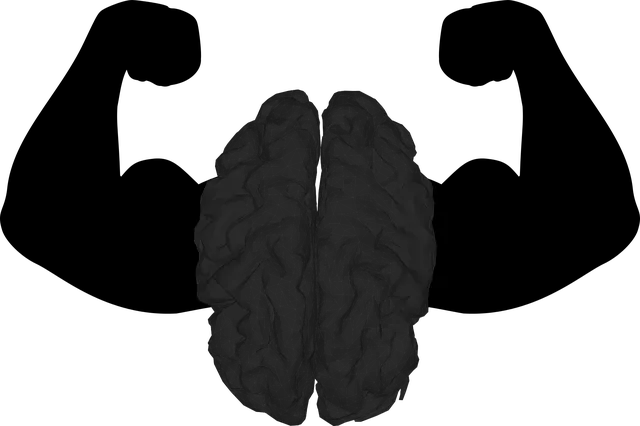Kaiser's inpatient mental health services in Littleton utilize therapeutic practices like Compassion Cultivation Practices (CCP) for enhanced well-being. Rigorous evaluation methods, combining qualitative and quantitative techniques, measure improvements in self-esteem, stress reduction, and emotional regulation. A multidisciplinary team offers personalized treatment for depression, anxiety, psychosis, and substance use disorders, with effective communication strategies and Mental Wellness Journaling Exercises. Comprehensive evaluations assess patient outcomes, satisfaction, and symptom reduction, highlighting the importance of Inner Strength Development and Cultural Sensitivity. Translating findings into actionable steps improves program effectiveness through evidence-based strategies tailored to specific mental health needs.
Mental wellness program evaluation is a multifaceted process crucial for understanding and enhancing the effectiveness of healthcare services. This article explores comprehensive assessment methods, focusing on Kaiser’s inpatient mental health services in Littleton as a case study. By examining common evaluation techniques, including measuring inpatient care outcomes, we gain insights into improving these programs. We discuss best practices for post-evaluation program enhancements, ensuring continuous improvement and positively impacting patient mental wellness, especially within the context of Kaiser’s Littleton facilities.
- Understanding Mental Wellness Programs and Their Evaluation
- Kaiser Inpatient Mental Health Services in Littleton: An Overview
- Common Evaluation Methods for Mental Health Programs
- Assessing the Effectiveness of Inpatient Care
- Best Practices for Program Improvement Post-Evaluation
Understanding Mental Wellness Programs and Their Evaluation

Mental wellness programs are designed to support individuals in enhancing their overall well-being and resilience. These initiatives often incorporate various therapeutic approaches, such as Compassion Cultivation Practices (CCP), to foster a sense of calm and empathy. By evaluating these programs, organizations like Kaiser can ensure their effectiveness in treating mental health conditions, including those at their inpatient facilities in Littleton.
Evaluation methods play a crucial role in understanding the impact and success of mental wellness coaching programs. Through rigorous assessment, institutions can measure improvements in key areas such as self-esteem, stress reduction, and emotional regulation. By employing these strategies, Kaiser can not only improve patient outcomes but also develop evidence-based practices that contribute to the overall mental health and well-being of their Littleton community.
Kaiser Inpatient Mental Health Services in Littleton: An Overview

Kaiser Inpatient Mental Health Services in Littleton offer specialized care for individuals experiencing severe mental health crises. As part of a larger healthcare network, Kaiser aims to provide comprehensive treatment options within a supportive environment. Patients have access to a multidisciplinary team comprising psychiatrists, psychologists, social workers, and nurses who collaborate to develop personalized treatment plans.
These services cater to a range of mental health concerns, including depression prevention, anxiety disorders, psychotic disorders, and substance use conditions. Communication strategies are integral to the patient care process, ensuring effective interaction between patients, families, and healthcare providers. Additionally, Kaiser offers Mental Wellness Journaling Exercise Guidance as part of its therapeutic approach, encouraging individuals to reflect on their thoughts and emotions for enhanced self-awareness and recovery.
Common Evaluation Methods for Mental Health Programs

Many mental wellness programs employ various evaluation methods to assess their effectiveness and impact on participants’ lives. These evaluations are crucial in understanding what works, identifying areas for improvement, and ensuring the program aligns with its goals of enhancing Mental Health Awareness and preventing Burnout. Common approaches include qualitative and quantitative techniques. Qualitative methods, such as interviews and focus groups, gather insights into individuals’ experiences, perceptions, and changes over time. This deep understanding is essential for programs like the one offered by Kaiser in Littleton, which aims to provide comprehensive inpatient mental health services.
Quantitative evaluations, on the other hand, rely on surveys, measurements, and statistical analysis to track progress and outcomes. These methods can assess changes in symptoms, mood, and overall functioning. By combining both qualitative and quantitative data, mental wellness programs gain a comprehensive view of their impact, enabling them to tailor interventions and strategies for better Mental Wellness.
Assessing the Effectiveness of Inpatient Care

Evaluating the effectiveness of inpatient care is a multifaceted process, especially when considering programs like those offered by Kaiser in Littleton. This involves assessing patient outcomes and satisfaction, as well as examining the program’s impact on reducing symptoms and improving overall mental wellness. Key metrics include tracking rehospitalization rates, which can indicate how successfully patients transition from inpatient to outpatient care.
Inner Strength Development and Cultural Sensitivity in Mental Healthcare Practice are integral components of these evaluations. Effective inpatient programs should foster patient resilience and equip them with coping strategies for ongoing mental health management. Additionally, risk management planning for mental health professionals is essential to ensure a safe and supportive environment that addresses the unique needs of each patient.
Best Practices for Program Improvement Post-Evaluation

After conducting an evaluation, it’s vital to translate the findings into actionable steps for program improvement, especially for institutions like Kaiser’s inpatient mental health facilities in Littleton. The first step involves a comprehensive analysis of the data gathered, focusing on identifying areas of success and pinpointing aspects that require enhancement. This process should involve all stakeholders—from clinical staff to administrative personnel—to ensure a holistic understanding of the program’s performance.
Best practices encourage implementing evidence-based strategies tailored to the identified needs. For instance, if the evaluation reveals high rates of depression among patients, integrating depression prevention programs and promoting emotional regulation techniques could be effective. Similarly, addressing burnout among healthcare providers through targeted interventions, such as staff support groups or workload redistribution, can significantly enhance the overall wellness of the mental health program.
Mental wellness program evaluation is a multifaceted process, as demonstrated by the diverse methods employed in assessing Kaiser’s inpatient mental health services in Littleton. From understanding program fundamentals to best practices for improvement, each section has highlighted the importance of comprehensive evaluation in enhancing patient care. By utilizing various techniques such as common assessment tools and post-evaluation strategies, healthcare facilities like Kaiser can ensure they provide effective, evidence-based treatments. Understanding what works and what needs adjustment is key to optimizing mental health outcomes, making these evaluation methods essential for any inpatient program aiming to deliver quality care.






